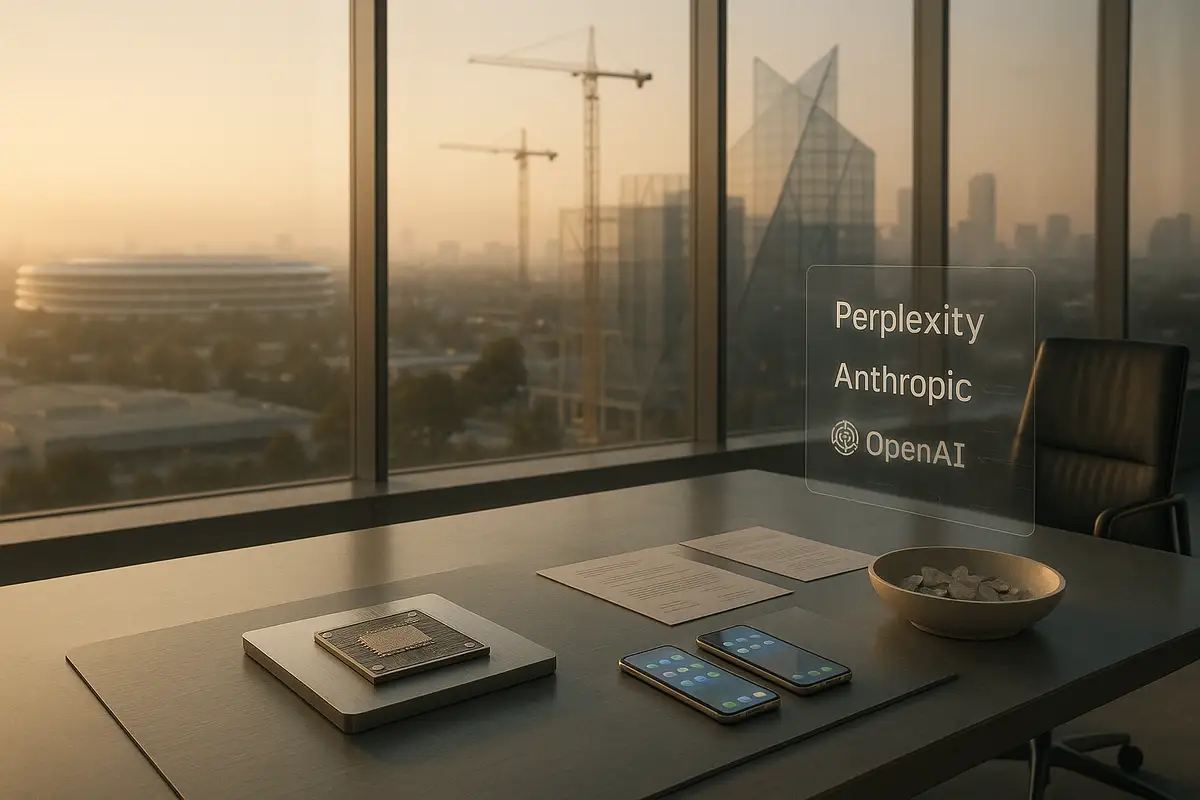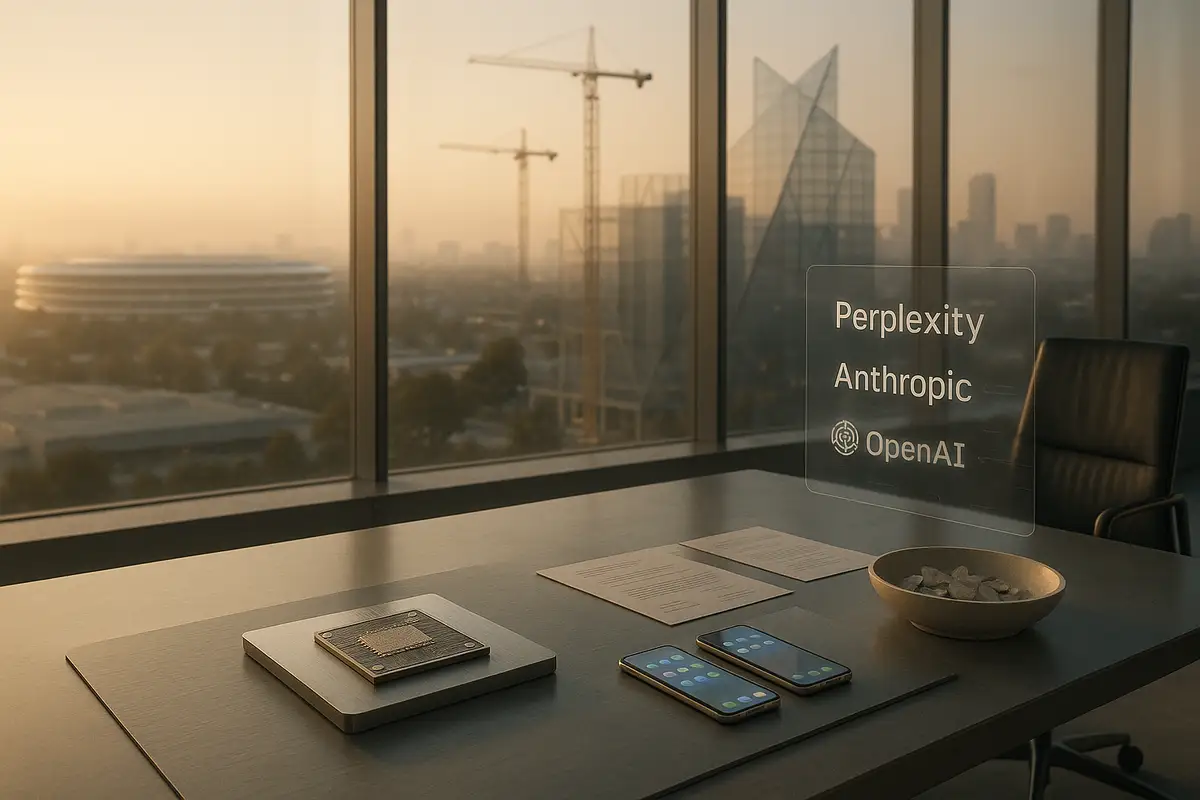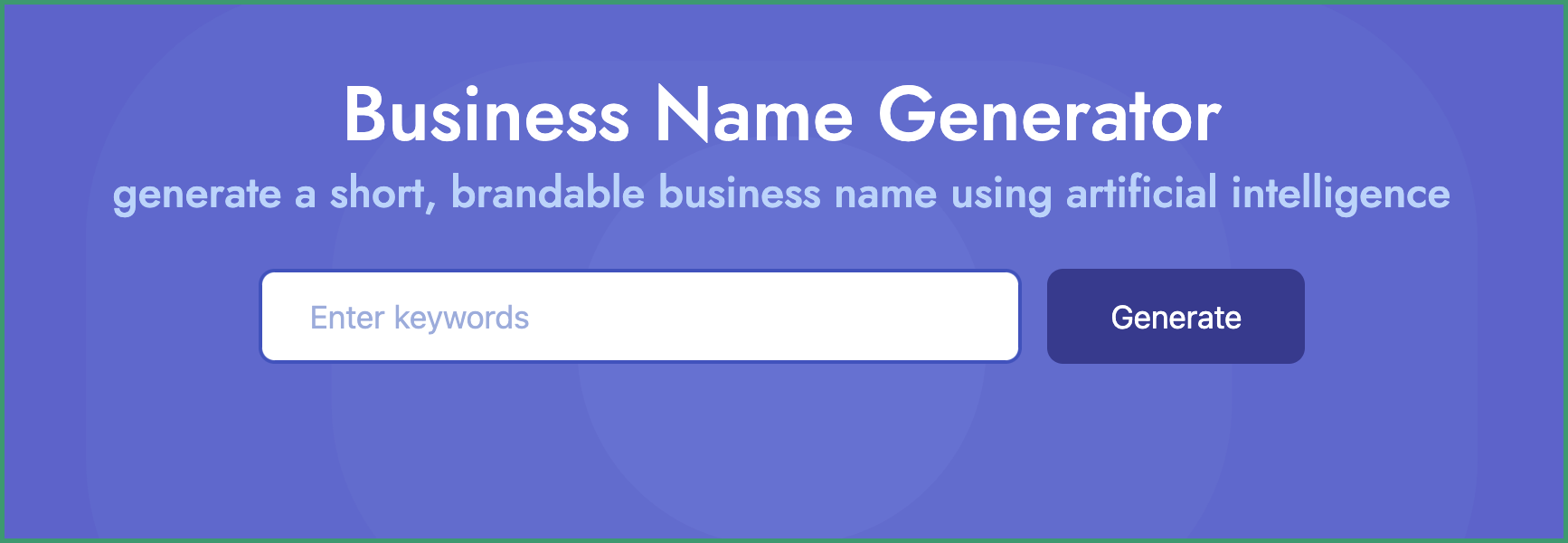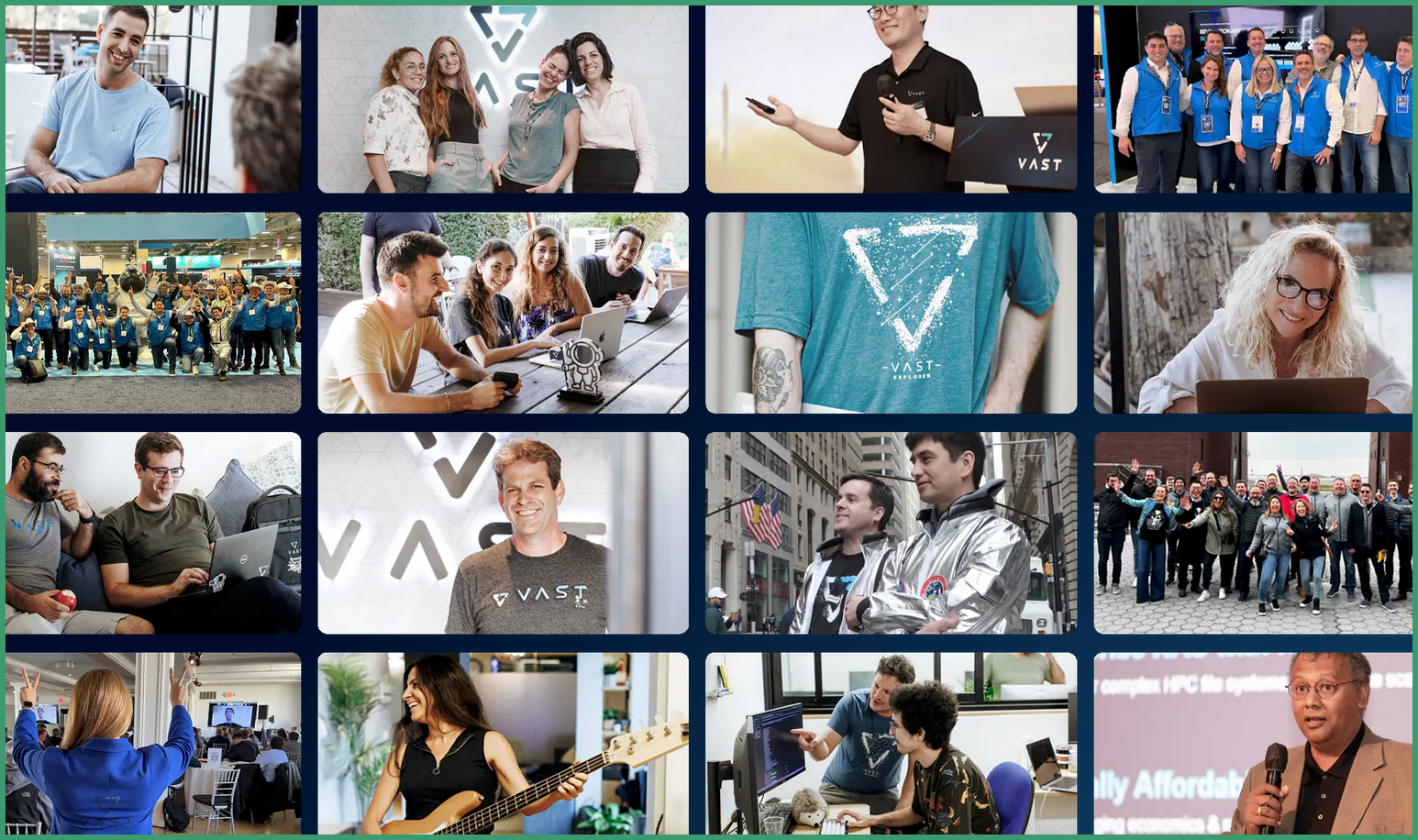Good Morning from San Francisco,
Apple opened its wallet wide after crushing earnings—Cook's shopping for AI companies like they're going out of style.
Meanwhile, OpenAI accidentally dumped thousands of private ChatGPT conversations into Google search results. Oops.
Developers face a cruel irony: they're using AI tools more than ever but trust them less each month. Turns out "almost right" code hurts worse than completely broken code.
Stay curious,
Marcus Schuler
Apple's AI Shopping Spree: Cook Opens the Checkbook After Earnings Beat

Apple crushed earnings expectations with $94 billion in revenue, but CEO Tim Cook spent Thursday's call talking about something else: buying his way into the AI race.
The company beat Wall Street on every metric. iPhone sales jumped 13% to $44.6 billion. Overall revenue grew 10%—Apple's best performance since December 2021. Cook even casually mentioned hitting 3 billion iPhones sold since 2007.
But the real news was Cook's sudden appetite for deals. "We're very open to M&A that accelerates our roadmap," he said. Apple has already bought seven companies this year, though Cook noted none were "huge" financially. He's clearly shopping for AI talent at a rate of one acquisition every few weeks.
The urgency makes sense. Apple projects about $14 billion in annual AI spending compared to Google's $85 billion and Meta's $72 billion. Cook defended the iPhone against threats from AI glasses and other gadgets, insisting they'll be "complementary devices, not substitution."
Not everything was perfect. iPad sales dropped 8% and Apple Watch revenue fell 8.6%. Tariff costs hit $800 million this quarter and will reach $1.1 billion next quarter.
Why this matters:
• Apple's acquisition spree signals the company knows it's behind in AI and is willing to buy what it can't build fast enough
• Cook's defense of the iPhone suggests even he's worried about AI devices threatening Apple's most important business

AI Image of the Day

Prompt:
A white daisy flower on a blue background, an oil painting on a grunge metal sign with a black border around the edges.
OpenAI's Search Experiment Dies Hours After Launch

OpenAI killed a ChatGPT feature Thursday after thousands of private conversations showed up in Google search results. The company called it a "short-lived experiment" that created "too many opportunities for folks to accidentally share things they didn't intend to."
The drama started when people discovered they could search "site:chatgpt.com/share" on Google and find over 4,500 stranger conversations. The results were wild - everything from bathroom renovation questions to therapy sessions and business strategies. One conversation even revealed a Deloitte consultant's name, age, and job details.
The feature wasn't broken technically. Users had to share a chat, then check a box to "make this chat discoverable." But many people clicked without reading the fine print.
Social media killed it fast. Newsletter writer Luiza Jarovsky posted examples of sensitive conversations going public. Her post went viral. Within hours, OpenAI pulled the plug.
This follows similar mess-ups. Google had problems with Bard conversations appearing in search results in 2023. Meta faced issues when users accidentally posted private AI chats publicly.
Why this matters:
• AI companies keep making the same privacy mistakes - rushing features without thinking through how real people will use them wrong.
• Enterprise buyers now have proof they need stricter AI vendor oversight since consumer failures signal risks for business data too.

🧰 AI Toolbox
How to Generate a Great Business Name

Namelix creates short, catchy business names based on keywords you provide. The AI generates brandable names that are easy to remember and spell. It also shows you logo ideas and checks if domains are available.
Tutorial:
- Go to the Namelix website
- Enter keywords that describe your business
- Choose a style like "Brandable," "Rhyming," or "Person"
- Click "Generate" to see name suggestions
- Browse through names and logos
- Save favorites and check domain availability
- Buy a logo and domain when you find the perfect name
URL: https://namelix.com/
Better prompting...
Today: SEO Metrics Performance Tracking
For a content-heavy B2B/B2C website (specify your type) with the primary goals of increasing organic traffic by X% and generating Y qualified leads per month, identify the top 5 SEO metrics to track. For each metric, please provide:
- Why it matters - How it directly impacts organic traffic and lead generation
- Benchmarks - Industry standards or good performance indicators
- Tracking tools - Recommended tools and setup tips
- Optimization tactics - 2-3 specific actions to improve each metric
- Red flags - Warning signs that indicate problems
- Reporting frequency - How often to monitor (daily/weekly/monthly)
Additionally, explain how these metrics interconnect and which ones should be prioritized based on:
- Current website maturity (new site vs. established)
- Available resources (time/budget)
- Quick wins vs. long-term gains
Include any important metrics I might be overlooking for a content-focused SEO strategy.
AI & Tech News
OpenAI Accidentally Shows Its Cards on Open-Source AI Before the Big Reveal
Leaked repository screenshots suggest OpenAI will release a powerful open-source AI model called "gpt-oss" with up to 120 billion parameters, using a Mixture of Experts architecture that activates just 4 of its 128 specialist components at any time. The move would mark a return to OpenAI's original open philosophy and put it in direct competition with Meta's Llama and Mistral's models—apparently even the company that named itself "Open" AI eventually remembered what that first word meant.
Google's New AI Thinks With Multiple Brains, Charges Premium Prices
Google launched Gemini 2.5 Deep Think, a reasoning AI that spawns multiple agents to tackle problems simultaneously—think of it as having several really smart assistants argue until they find the best answer. The catch? It's locked behind Google's $250-per-month Ultra subscription, because apparently revolutionary AI comes with revolutionary price tags, though it did crush competitors on key benchmarks like math and coding tests.
Figma's Stock Triples Because Apparently $20 Billion Wasn't Enough
Figma's stock rocketed 250% to $115.50 in its NYSE debut after pricing at $33, giving the design software company a $68 billion market cap just two years after Adobe's failed $20 billion acquisition attempt. The massive first-day pop signals the tech IPO market has finally thawed, with CEO Dylan Field's stake now worth over $6 billion—not bad for a 33-year-old whose company dodged regulatory bullets to go public instead.
Amazon's AI Shopping Spree Costs $35 Billion Less in Free Cash Flow
Amazon's second-quarter revenue jumped 13% to $167.7 billion with net income rising to $18.2 billion, driven by AWS cloud growth of 17.5% and the company's aggressive push into AI across everything from shopping agents to warehouse robots. The retail behemoth's free cash flow dropped to $18.2 billion from $53.0 billion last year as it pours money into AI infrastructure, apparently believing that teaching one million robots to work smarter is worth the hefty price tag.
Nintendo's Switch 2 Turns Gaming Into a Money-Printing Machine
Nintendo more than doubled its quarterly revenue to $3.8 billion after the Switch 2 racked up 5.8 million sales since launching June 5, with the console selling 3.5 million units in just its first four days. The company kept its annual sales forecast at a conservative 15 million units, though analysts think that's like setting the bar at ankle height—Nintendo will likely blow past that number.
Palantir Wins $10 Billion Army Contract Because Apparently Data Mining Pays Better Than Gold Mining
The U.S. Army handed Palantir a $10 billion contract over the next decade, the largest deal ever for the data analysis company co-founded by Peter Thiel, cementing its role as the military's go-to data processor amid growing threats from Ukraine to Taiwan. The deal builds on an earlier $795 million contract for AI targeting software and reflects the Trump administration's push to outsource government work to commercial companies—turns out teaching machines to analyze battlefield data is quite the growth industry.
McDonald's Plans AI Expansion to 40,000 Restaurants by 2027, Bets Big on India Hub
McDonald's will "double down" on AI investments by 2027 and plans to use India as a key hub for its global AI operations, with the fast-food chain already deploying AI to verify orders at 400 restaurants to catch mistakes before customers get their food. The company expects to roll out AI order verification to all 40,000 locations worldwide by 2027, while also using artificial intelligence for sales forecasting, pricing decisions, and building a personalized app that works across countries.
Musk's Brain Chips Head to UK for Clinical Study on Thought-Controlled Devices
Elon Musk's Neuralink will test its brain implants in Great Britain through a clinical study with London and Newcastle hospitals, targeting patients with severe paralysis who could control digital and physical tools with their thoughts. The $9 billion company, which raised $650 million last month, already has five paralyzed patients in the US using the device after resolving FDA safety concerns that initially blocked human trials in 2022.
China's Food Delivery Giants Call Truce After Government Tells Them to Stop Fighting
China's three largest food delivery companies—Alibaba, Meituan, and JD—simultaneously pledged Friday to end their price war after regulators summoned them in July and essentially told them to knock it off. The move ends months of aggressive competition that included $1 meals and free bubble tea in the $80 billion food delivery market, with all three stocks rising as investors celebrated the return to rational pricing.
Vast Data's Valuation Jumps From $9B to $30B Because AI Needs Somewhere to Store All That Intelligence
Alphabet's CapitalG and Nvidia are negotiating to fund AI storage company Vast Data at a $30 billion valuation—a nice triple-up from its $9.1 billion price tag just two years ago. The New York startup, which builds specialized storage systems for AI data centers and counts Elon Musk's xAI as a client, projects revenue will hit $600 million next year as everyone scrambles to build the plumbing for the AI boom.
Developers Love AI Tools But Don't Trust Them Anymore

Developers are living a contradiction. They use AI tools more than ever, but trust them less each month.
Stack Overflow surveyed 49,000 developers across 177 countries. The results show a clear split: 84% now use or plan to use AI tools, up from 76% last year. But trust in AI accuracy dropped from 43% to just 33%. Favorability fell from 72% to 60%.
The biggest problem isn't broken code. It's "almost right" code that looks correct but isn't. Sixty-six percent of developers cite this as their top frustration. Another 45% say debugging AI code takes longer than expected.
This creates a nasty trap. Broken code gets tossed quickly. But "almost right" solutions demand careful analysis. Many developers report it's faster to write code from scratch than fix AI's mistakes.
Despite the trust issues, developers aren't abandoning human help. Stack Overflow remains the top platform at 84% usage. When AI fails, 35% head straight there for answers.
AI agents aren't taking over either. Only 23% use them regularly, and 77% say "vibe coding" isn't part of professional work.
Why this matters:
• The "almost right" problem creates new technical debt that can reduce productivity despite AI's promises
• Developers are doubling down on human expertise even as they adopt AI tools, showing successful integration amplifies rather than replaces the need for experienced developers

🚀 AI Profiles: The Companies Defining Tomorrow
Vast Data

Vast Data builds AI-ready storage that eliminates the old trade-offs between speed and cost. The company ditched traditional tiered storage for unified all-flash systems that feed data-hungry AI models without breaking budgets.
The Founders
Founded: 2016 by Renen Hallak (ex-XtremIO), Shachar Fienblit (ex-Kaminario), and Jeff Denworth (ex-CTERA Networks). HQ: New York, engineering in Tel Aviv. Mission: Kill storage compromises that force companies to juggle fast-expensive vs. slow-cheap data tiers. Size: Not disclosed, but serving Fortune 100 clients.
The Product
Core offering: DASE architecture (Disaggregated and Shared Everything) that puts all data on flash memory with smart software orchestration. Strengths: Unified storage eliminates data bottlenecks, scales without traditional limits, works seamlessly with Nvidia GPUs. What it does: Feeds AI models faster while cutting infrastructure costs - no more data silos or slow retrieval times.
The Competition
Direct rivals: Weka ($1.6B valuation), DDN, Pure Storage ($17B public). Legacy threats: Dell EMC, NetApp, IBM with their outdated tiered systems. Wild card: Databricks as Vast expands into data management. Market position: Industry insiders call Vast's tech more "mature" than younger rivals. Nvidia backs multiple storage startups but Vast leads the pack.
Financing
Total raised: ~$380M from Dell VC, Goldman Sachs, Fidelity, Nvidia, CapitalG. Current valuation: $9.1B (Series E, late 2023). Next round: Targeting $30B valuation 🚀. Financial health: Cash flow positive, $200M ARR growing 2.5-3x annually.
The Future ⭐⭐⭐⭐⭐
Perfect timing meets perfect execution. Vast caught the AI wave early and built the infrastructure everyone needs now. Revenue growth stays strong while maintaining profitability - rare for infrastructure startups. The $30B valuation looks steep but AI demand keeps accelerating.










